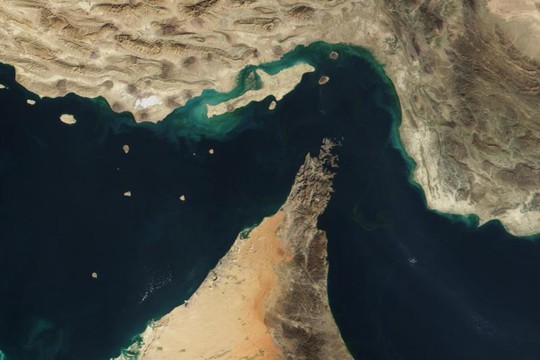Approximately 20 million barrels of oil and petroleum products – about one-fifth of the world’s oil supply - pass through the narrow Strait of Hormuz each day. Technically speaking, Iran can block the strait, which is only 40 km wide at its narrowest point. This capability is a significant leverage factor for Iran. However, it would leave Tehran with few serious options besides a military showdown and, being smart historical strategists, the Iranians are fully aware of this. Furthermore, since Iran's key seaports are located in the Gulf, blocking the strait would severely impact the Islamic Republic’s own export revenues.
A resulting global oil crisis would force many countries to step in, with the US inevitably leading an international coalition. This would challenge America's role as a global policeman, but its military might by far surpasses Israel's. The United States also has weapons in its arsenal that are capable of targeting the underground bunkers of Iran's nuclear program – something that is largely beyond Israel's reach. Iran is well aware of this. Moreover, wary of the devastating impact that Iran’s move could have on their economies, the Gulf countries would take a more active role in resolving the situation.
Iran's economy is vulnerable as its energy sector relies on a handful of large plants and oil and gas fields. For example, the South Pars gas field, which accounts for around 70-80 percent of the country’s natural gas production, is very much at risk now. This does not mean that Iran’s energy sector could be wiped out with a single pinpoint strike though. Still, vast as the Pars economic zone is, this high concentration of production makes Iran's economy vulnerable. That being said, Israel's small territory creates similar vulnerabilities. Also, any further escalation could lead to the destruction of the oil infrastructure of Iran, which is the third-largest oil producer in OPEC, churning out an average 3.26 million barrels per day in 2024.
Notably, during the previous escalation with Israel in 2024, Iran’s critical oil infrastructure remained largely unscathed. Last year’s escalation continued for about a month, causing increased volatility in the global oil market before prices finally slid back to their pre-escalation levels.
As to the possibility of Iran cutting off the Strait of Hormuz, one thing is clear: Tehran does possess this significant "weapon" in the global oil market, but would only use it as a last resort. Judging by its recent retaliatory missile strikes on Israel, Iran still has a lot of headway here. Which means that this is unlikely to happen any time soon. Well, this might happen sometime in the future though, but it would not be sustainable, given the numerous economic interests tied to this global crossroads. Perfectly aware of this, Tehran is looking for a way out of the current military conflict. However, Israel has a different goal now. Israeli Ambassador to Russia Simona Galperin stated that at the moment it is premature to talk about resolving the conflict with Iran by non-military means. In this regard the question surrounding the conflict between the two countries whether it will lead to disruptions in the Strait of Hormuz remains relevant.
read more in our Telegram-channel https://t.me/The_International_Affairs

 11:35 17.06.2025 •
11:35 17.06.2025 •























